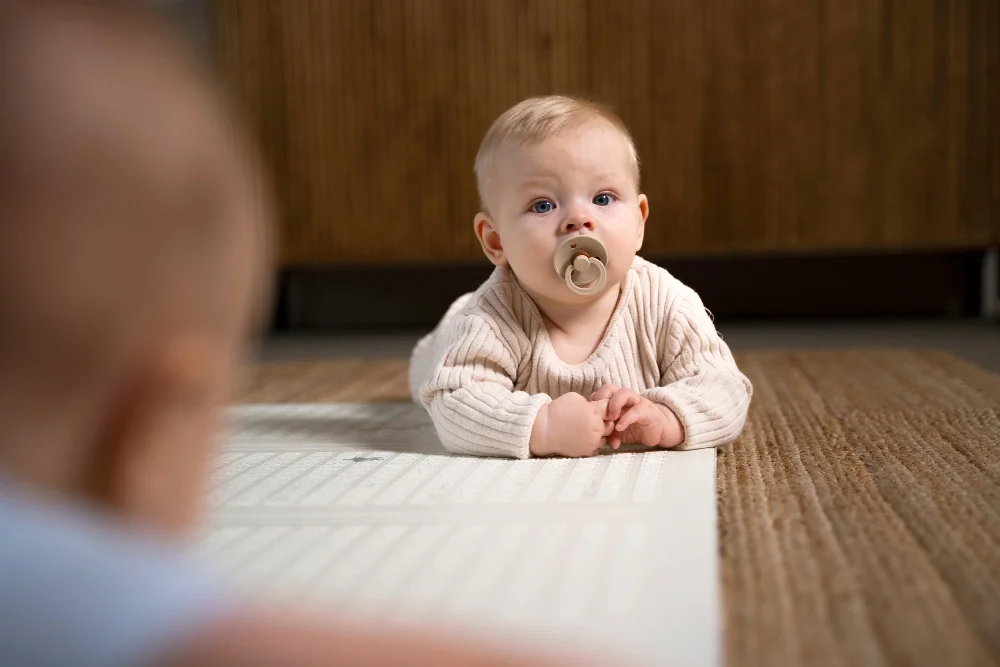Welcoming a baby into the world is a mix of joy, excitement, and endless questions. One of the most common questions new parents ask is, What is considered newborn? The answer depends on whether you look at it from a medical, parental, or social perspective. This early stage of life is short yet deeply important for growth, bonding, and survival.
In this detailed guide, we’ll explore medical definitions, common parental interpretations, differences between newborns and infants, physical traits, and why clarity matters. By the end, you’ll have a clear understanding of what the newborn stage truly means.
Medical Definition of a Newborn
Medically, a newborn is also called a neonate. The World Health Organization (WHO) defines the neonatal period as the first 28 days after birth. This is the strictest and most widely accepted definition across healthcare systems.
Why only 28 days? Because this is the most fragile time in a baby’s life. Babies adjust from the womb to the outside environment, learning to breathe independently, regulate body temperature, and feed properly. This stage requires close monitoring, as most infant health risks occur in this short span.
Doctors schedule key appointments within this period to track weight gain, screen for health issues, and administer the first vaccines. Understanding this definition helps parents realize why medical professionals emphasize frequent checkups in the first month.
Broader Parental Usage of What Is Considered Newborn

While doctors stick to 28 days, many parents and caregivers extend the meaning of what is considered a newborn. In everyday life, the newborn label often applies to babies up to 2 or even 3 months old.
The reasons for this broader usage are practical and emotional. For parents, a baby still feels very tiny and fragile beyond the 28-day mark. Sleep patterns remain irregular, feeding is frequent, and bonding is still in its earliest stages.
Baby products like diapers and clothing also come in a “newborn” size that typically lasts a bit longer than four weeks.
This flexible definition allows parents to Approach early care without feeling pressured to transition too quickly. In simple terms, the medical world is precise, but parenting is more flexible.
Key Reasons Parents Extend the Newborn Label
- It recognizes that developmental change is gradual.
- It reflects how society and products classify early babyhood.
- It reassures parents that their baby is still in a delicate phase.
What Is Considered Newborn vs Infant and Toddler
Understanding what is considered newborn also means knowing how it differs from other stages.
A newborn is 0–28 days old in medical terms, though sometimes up to 2–3 months in daily life. An infant refers to babies up to 12 months old, covering milestones like crawling and first words.
A toddler begins around age 1 and continues until about age 3, when walking and independence become stronger.
Key Differences at a Glance
- Newborn (Neonate): Birth to 28 days (medically) or up to 2–3 months (commonly).
- Infant: Birth until around 12 months; includes growth, crawling, teething, and first words.
- Toddler: From 1 year to about 3 years; marked by walking, talking, and developing independence.
Physical and Developmental Traits of a Newborn

Newborns are easy to identify because of their unique characteristics. They have distinct physical features and behaviors that separate them from older infants.
Some common traits include:
- Large head: A newborn’s head is disproportionately large compared to the body, with soft spots called fontanelles.
- Lanugo: Fine hair that covers parts of the body, especially in premature babies.
- Sleep patterns: Newborns sleep between 16–18 hours a day but wake frequently for feeding.
- Crying: Their only way of communication, often signalling hunger, discomfort, or the need for closeness.
In addition to physical signs, newborns show fascinating developmental abilities. They recognize their mother’s voice, turn toward familiar sounds, and begin to form emotional bonds. Reflexes such as sucking, grasping, and rooting are strong indicators of healthy development.
Why Understanding the Newborn Definition Matters
Understanding what is considered newborn goes far beyond a simple label. It shapes how doctors deliver medical care, how parents set expectations, and how society views early childhood.
A clear definition ensures that newborns receive proper health monitoring in their most vulnerable days, while parents gain confidence in handling feeding, sleep, and bonding. It also helps companies design baby products that actually match the needs of this delicate stage.
In short, clarity in defining a newborn creates a bridge between medical precision and parental experience, making the journey smoother for both families and professionals.
Emotional Side of Parenting: What Is Considered Newborn

Beyond medical and technical definitions, the newborn stage carries emotional weight. For many parents, these first weeks feel both overwhelming and magical. The baby is small, dependent, and fragile, creating a strong sense of responsibility.
Parents often describe sleepless nights, unpredictable feeding times, and constant worry. Yet, they also highlight tender bonding moments like the first smile or the way a newborn grips a finger tightly. This emotional side is why many families extend the newborn label longer than the official 28 days.
Conclusion: Understanding What Is Considered Newborn
Understanding what is considered newborn may seem like a small detail, but it carries great importance for parents, doctors, and caregivers. Medically, the newborn stage is defined as the first 28 days of life, also known as the neonatal period.
However, in daily life, parents and baby brands often stretch this stage up to 2–3 months because babies still feel tiny, fragile, and dependent.
No matter how you define it, the newborn phase is a time of rapid changes, delicate health needs, and strong emotional bonding. It is the foundation for a child’s growth and development, and it shapes how families adjust to life with a new baby.
By knowing exactly what is considered newborn, parents can feel more confident, better prepared, and more connected during this precious stage.












